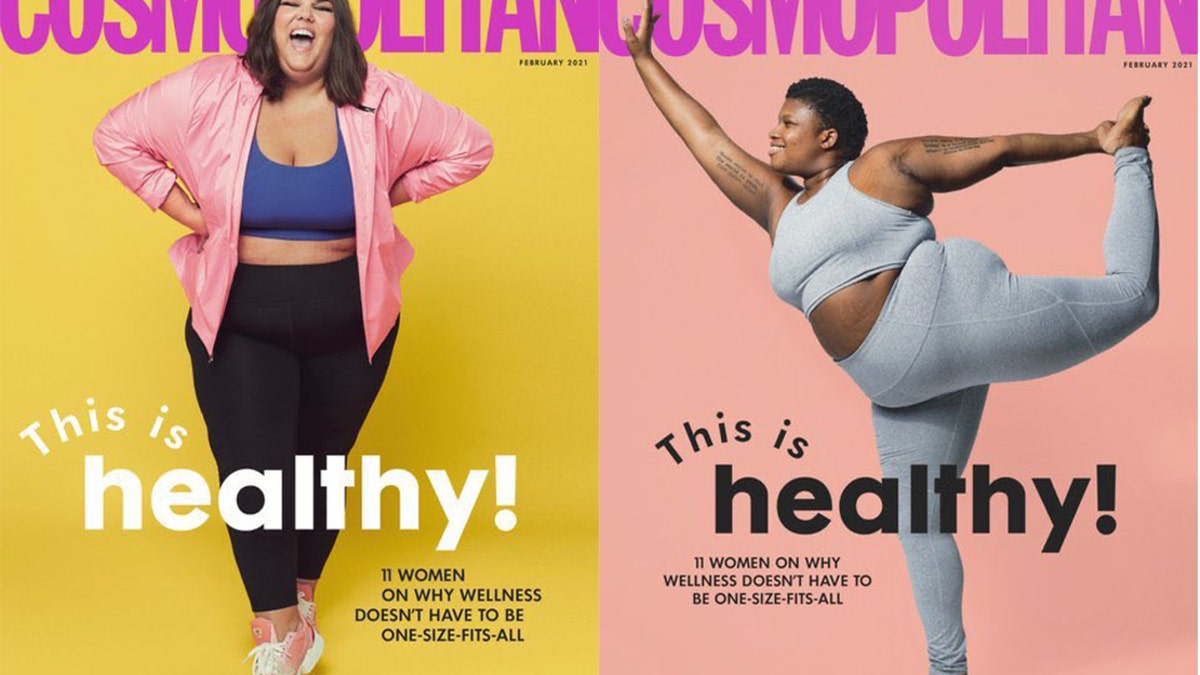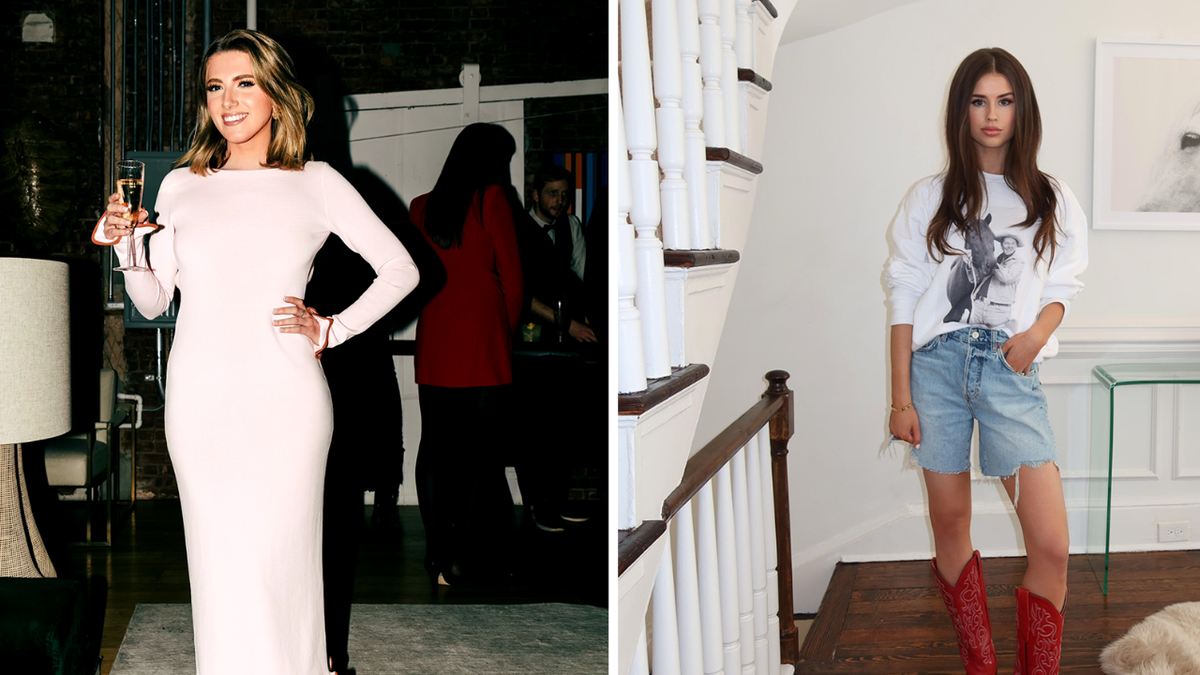

The editors of a conservative fashion magazine called The Conservateur explained in a new interview why fashion, "hotness," and other industries or concepts have been coded left or right-wing politics.
"I think that there's been an uglification, whether you see modern art or you see progressives kind of pushing onto women to reject men, dye your hair blue and wear a septum piercing," Jayme Franklin, founder and CEO of The Conservateur, told Fox News Digital.
Franklin founded The Conservateur magazine in 2020 after graduating from the University of California-Berkeley as a response to the fashion industry and stylists often signaling left-wing political sentiments.
NY MAG COVER ACCUSED OF CROPPING OUT BLACK ATTENDEES OF TRUMP INAUGURATION EVENT

The editors of a conservative fashion magazine called The Conservateur explained to Fox News Digital why fashion, "hotness," and everything else has been coded left or right-wing politics. (L: Callie Thorpe; R: Jessamyn Stanley)
"We started our Make America Hot Again hat. Obviously, it's a fun hat that was so popular for us that people loved. But it does touch on a bigger thing. We say at The Conservateur, we are all about being our best self. That's what we're promoting to women," Franklin said.
The Conservateur editor-in-chief, Caroline Downey, argued that male-led podcasts have been coded "right-wing" for merely being "fundamentally irreverent."
"They weren't policing words, and they were also fundamentally trying to pursue truth. Joe Rogan gets a lot of criticism for platforming controversial figures, but his podcast style has always been the same, which is to ask questions of people who know more than him on a specific subject and to just have stimulating conversations," Downey said.
"That alone was considered provocative during a cancel culture, very word policing time when you were supposed to just take the propaganda from the Democratic Party and accept it. So just free discourse on these podcasts, just speaking in an unfiltered way, is unfortunately right-wing coded," she added.
Their comments came after they spoke with Emma Goldberg of The New York Times about certain activities and institutions being "coded" in a politically polarized country.
'MAKE AMERICA HOT AGAIN' SOCIALS BRING YOUNG CONSERVATIVE SINGLES TOGETHER IN NEW YORK CITY

The New York Times piece argues the "Hamilton" Broadway play is coded left-wing politics. (Getty Images)
For instance, Goldberg wrote that Broadway plays like "Hamilton" and "Rent" are "left-coded" and that comedy and wrestling have been "right-coded."
"People have often signaled their values in the shows they watch ("The West Wing"), clothes they wear (white pantsuits) and restaurants they frequent," Goldberg explained.
"But it has become wildly popular in recent years, and especially in recent months, to read cultural tea leaves with the word ‘coded.’ In group chats, on Reddit and on X, we’re calling anything and everything right or left ‘coded.’ It’s like playing a game of charades, gesturing at the qualities a certain celebrity or bar or podcast has without saying exactly what you mean."
Downey argued that such left-wing and right-wing coding of activities has led to a "dual economy."
"I'm not sure if that is sustainable for the future. I'm not sure we can have red and blue coffee," she added.
She further said that the use of the term "coded" has been pervasive in our culture due to the polarized nature of political alignment in the U.S.
SOCIETY HAS A NEW ‘PERVERSE ATTRACTION’ TO TOXIC MALE CHARACTERS, NY TIMES COLUMN ARGUES

The founder and CEO of The Conservateur Jayme Franklin (on the right) and editor-in-chief Caroline Downey (on the left).
"I think the coding is a natural byproduct of the fact that leftism has infiltrated and hijacked most institutions in our culture, including fashion editorial and fashion production," Downey said.
"If we have a coded brand, that is meeting the moment for many young women who don't feel comfortable or necessarily welcomed by what is already available on the market." she added.
Building upon that sentiment, Franklin argued that such conditions motivated her to launch The Conservateur fashion magazine to appeal to women with traditional values.
"I think a lot of fashion brands tend to lean left, unfortunately. So I think what we want to do at The Conservateur – one: we want to get more women on our side, because I do believe our lifestyle, whether it be getting married, having a family, working hard in your job, and loving this country, and going to church … I think makes for a more successful and happier life for women," Franklin said.
